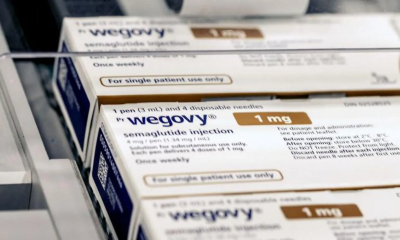Menopause often brings disruptive symptoms such as hot flashes, night sweats, and sleep disturbances.
Hormone therapy (HT) has long been prescribed to alleviate these issues, but many women remain uncertain or fearful about using it.
Hormone therapy was once a routine prescription until a 2002 study raised concerns about increased risks of breast cancer and blood clots.
Although subsequent research has shown that modern hormone treatments can benefit many women, misconceptions and anxiety persist.
“There is still a lot of confusion and a lot of fear,” said Grayson Leverenz, 50, from Durham, North Carolina, who began hormone therapy last year. “I just feel like myself again,” she added, noting improvements in sleep, anxiety, and hot flashes.
Doctors emphasize that hormone therapy is effective for many women but is not a one-size-fits-all solution. The treatment addresses symptoms caused by declining estrogen and progesterone levels during menopause.
Low-dose vaginal estrogen is considered safe for vaginal dryness, while systemic therapies—including pills, patches, sprays, gels, or rings—treat broader symptoms such as hot flashes.
Jennifer Zwink, a nurse from Castle Rock, Colorado, uses an estrogen patch along with a progesterone IUD. She reports significant relief from hot flashes, better sleep, and eased joint pain and bloating. “It’s not like a 100% magic wand,” she said. “But it definitely has made a significant difference.”
The Menopause Society notes that starting hormone therapy within 10 years of menopause may lower the risk of cardiovascular disease, support bone health, and reduce the risk of Type 2 diabetes.
However, both estrogen-only and combined therapies carry increased risks of stroke and blood clots, though patches, gels, and sprays may be safer than oral pills.
Physicians generally advise limiting estrogen therapy to seven years and combined therapy to three to five years, and it may be contraindicated for women with prior strokes or certain medical conditions.
A recent FDA expert panel highlighted debate over the safety warnings on hormone therapy labels. While some doctors advocate removing the warnings, a letter signed by 76 researchers urged the FDA to hold a public advisory meeting, citing patient safety concerns.
Experts also caution against misinformation circulating on social media claiming that hormones prevent dementia or ensure long-term health. OB-GYN Dr. Nanette Santoro of the University of Colorado stressed that hormone therapy does not guarantee longevity. New non-hormonal alternatives, such as fezolinetant (Veozah) for hot flashes, gabapentin, and topical moisturizers, provide additional options for symptom management.
Amid ongoing debate, specialists continue to recommend regular exercise, a balanced diet, and informed discussions with healthcare providers to manage menopause effectively.






-20260108103159.webp)



-20260228080513.webp)


-20260228064648.jpg)

-20260228063029.jpg)








-20260227090008.webp)




-20260224075258.webp)







-20260221022827.webp)

